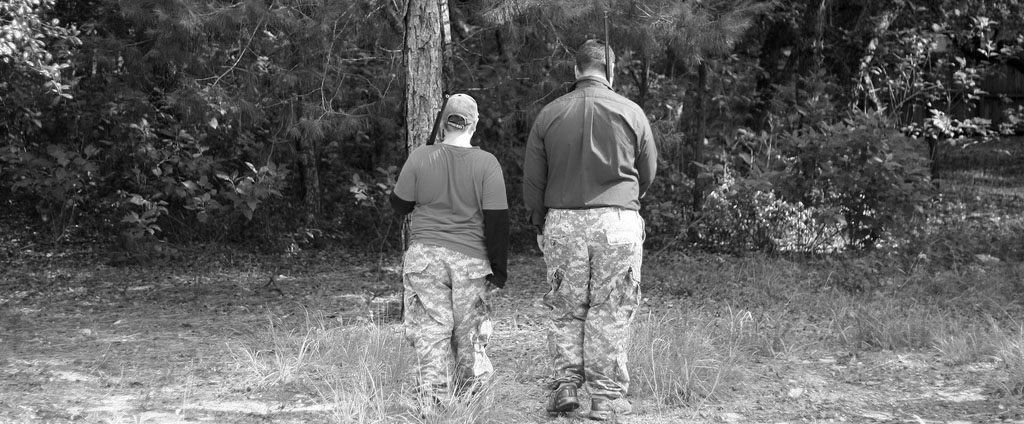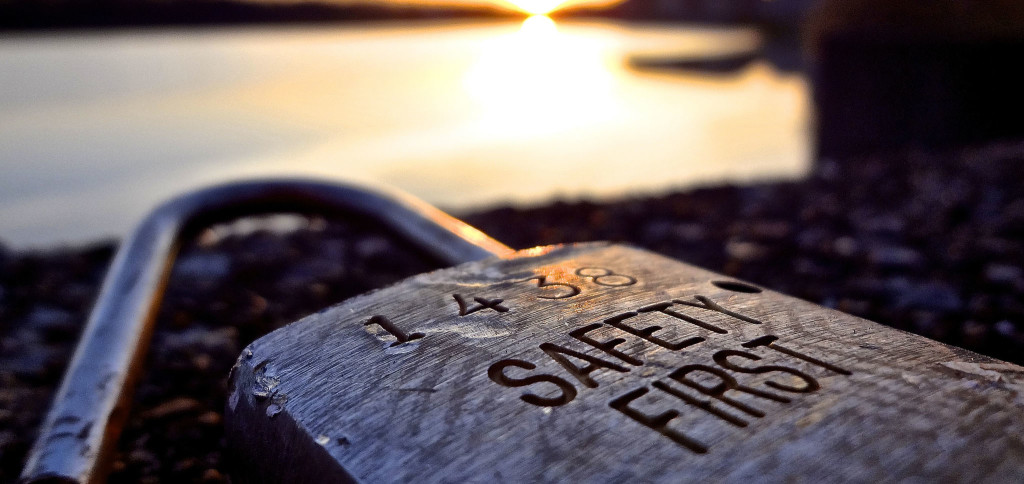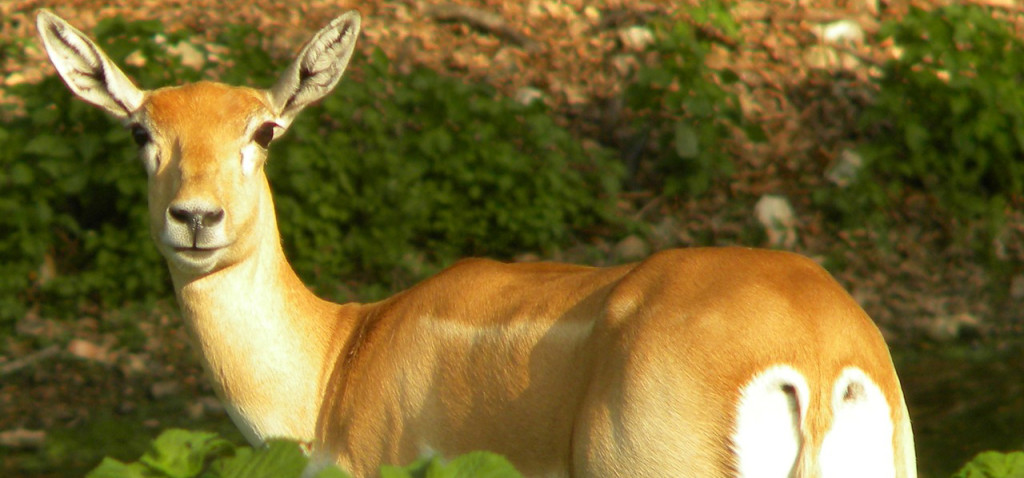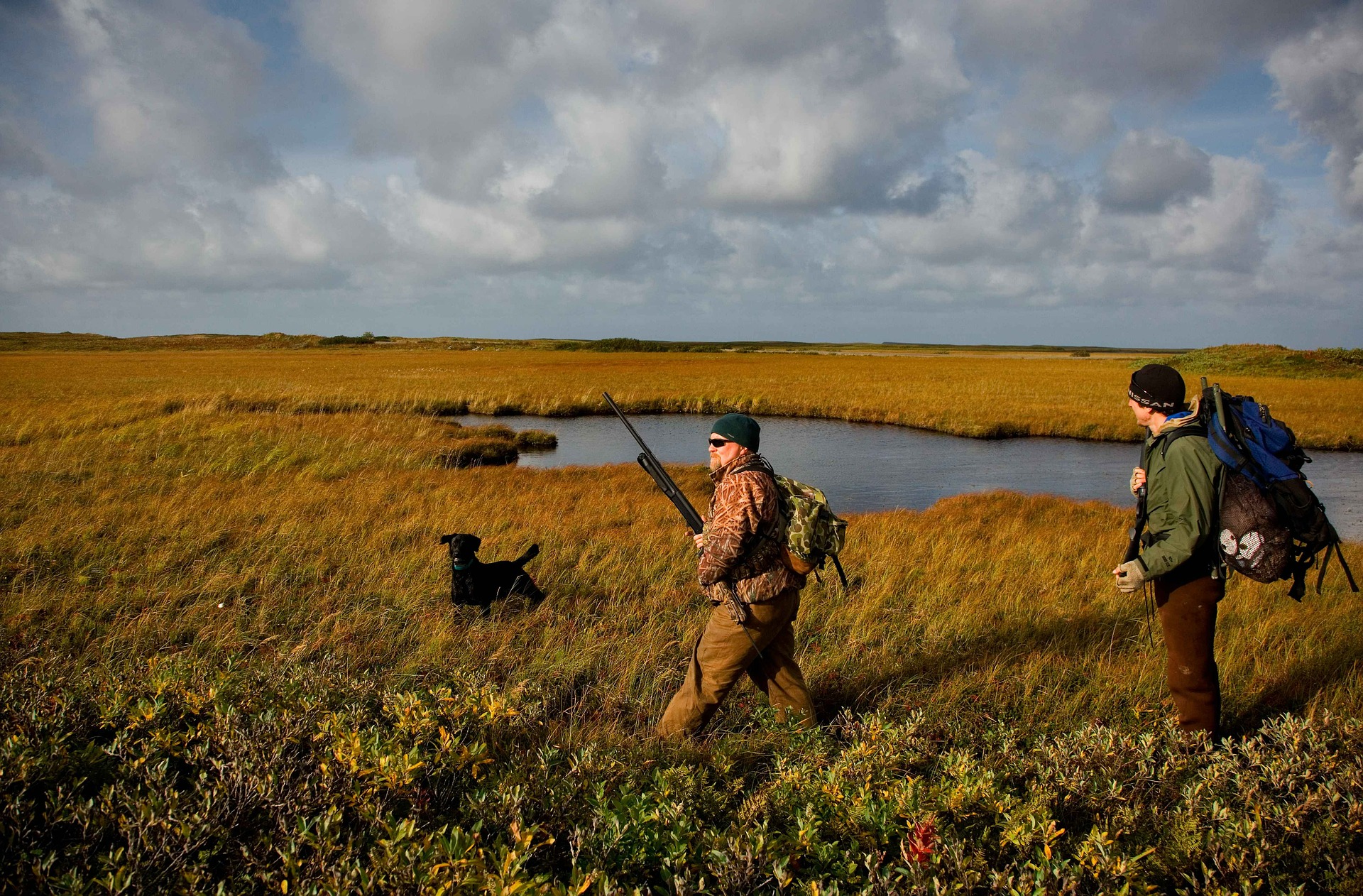
There is seldom a closer bond than the bond that is shared between a hunter and hunting dog. A well-trained canine companion can greatly improve your hunt and help you get that prized kill. For this reason, hunters will often pay top dollar for the best hunting dogs that breeders have to offer.
Hunters and dogs have a long history of working together. One of the primary reasons that ancient humans domesticated dogs in the first place was to help humans capture animals for food. These days, we use trusty dogs to track, drive out, and fetch animals that hunters have shot.
The Qualities That Make a Good Hunting Dog
Hunters choose their dogs based on specific characteristics that are unique to that breed. However, there are a few universal traits that should be present in all companions in order to be the best all around hunting dog:
- Obedience and disciplined
- Easily trained
- Intelligent
- Has quick reaction time
- Courageous
Any hunting dog that possesses these qualities will be an essential companion to take with you on your hunts.
Choosing the Right Dog for You
Picking the right dog to assist you on your hunts isn't just about choosing from the best hunting dog breeds. It is also about knowing your personality and how you will react to the dog's personality traits. Every breed has its own unique temperament and characteristics which have been enhanced through selective breeding. Choosing a hunting dog is a big decision, and it means that you need to create a bond with one or more dogs in order for them to perform excellently. It is important that you spend time researching various breeds and learning which one is the best fit for you.
The Labrador Retriever
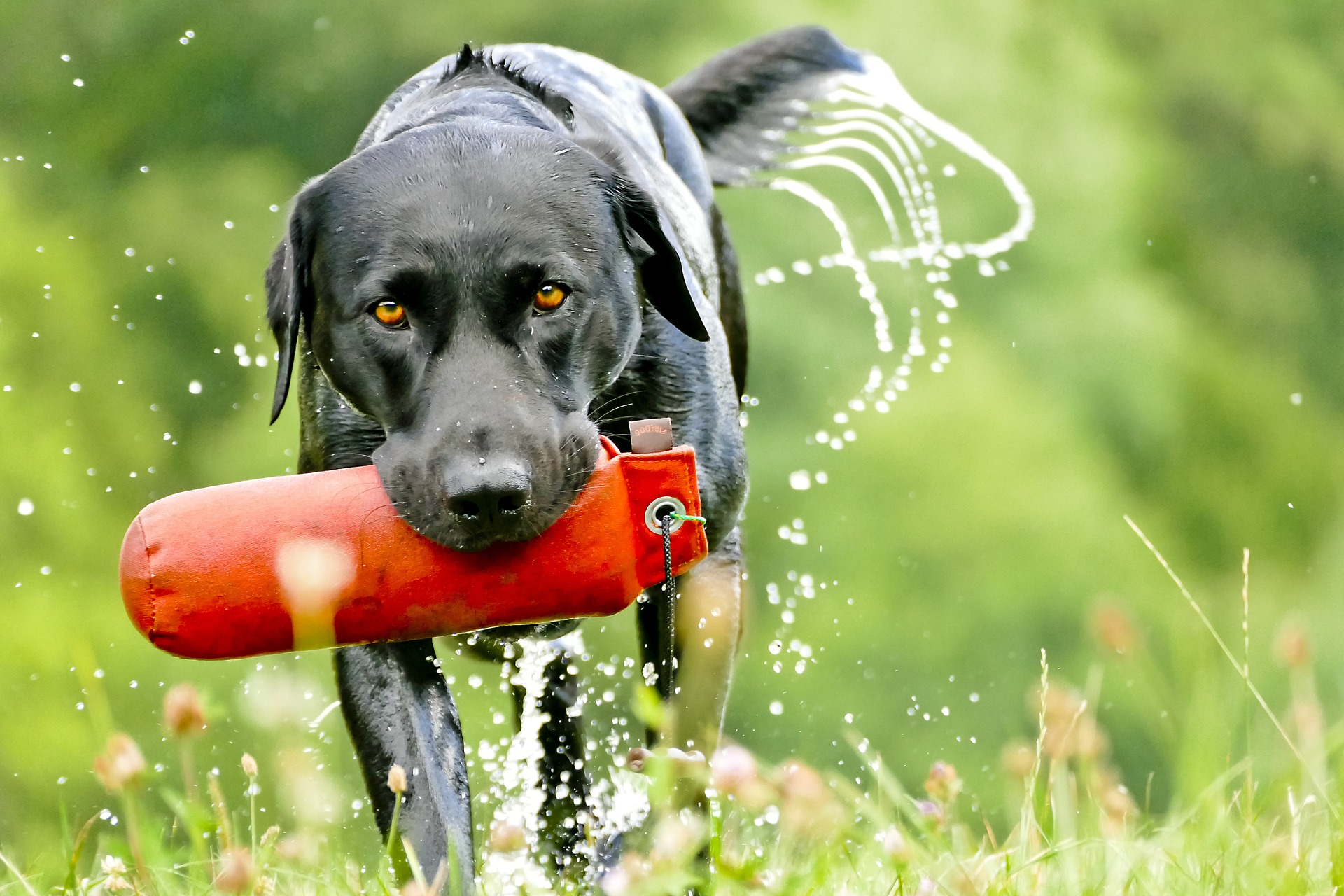
The Labrador is smart, loyal, and confident. Not only is the lab one of the most popular family dogs in North America, but it also has the reputation of being one of the best duck hunting dogs that you can have. While the dog is perfectly capable of helping hunters tackle any small game, it was specifically bred for duck hunting.
The lab is fearless, strong, and energetic. It is an excellent swimmer and retriever, and fetching animals comes instinctively to it. Because they are very trainable, they are often used in hunting, in emergency response, and as service dogs. They are the perfect type of dog to have if you have children.
Before you buy a lab, it is important that you know just what you’re getting yourself into. Unlike other dogs, labs and their golden retriever counterparts are extremely energetic. If they are not properly exercised, this energy can easily turn into destructiveness. Furthermore, due to their nature of carrying items in their mouths, they're likely to chew on things when bored.
Labs can also act a bit greedy, especially when it comes to food. It is important that they are well-fed, especially before going on a hunt. Otherwise, your dog might actually chew the duck that it was supposed to bring back to you.
The Beagle
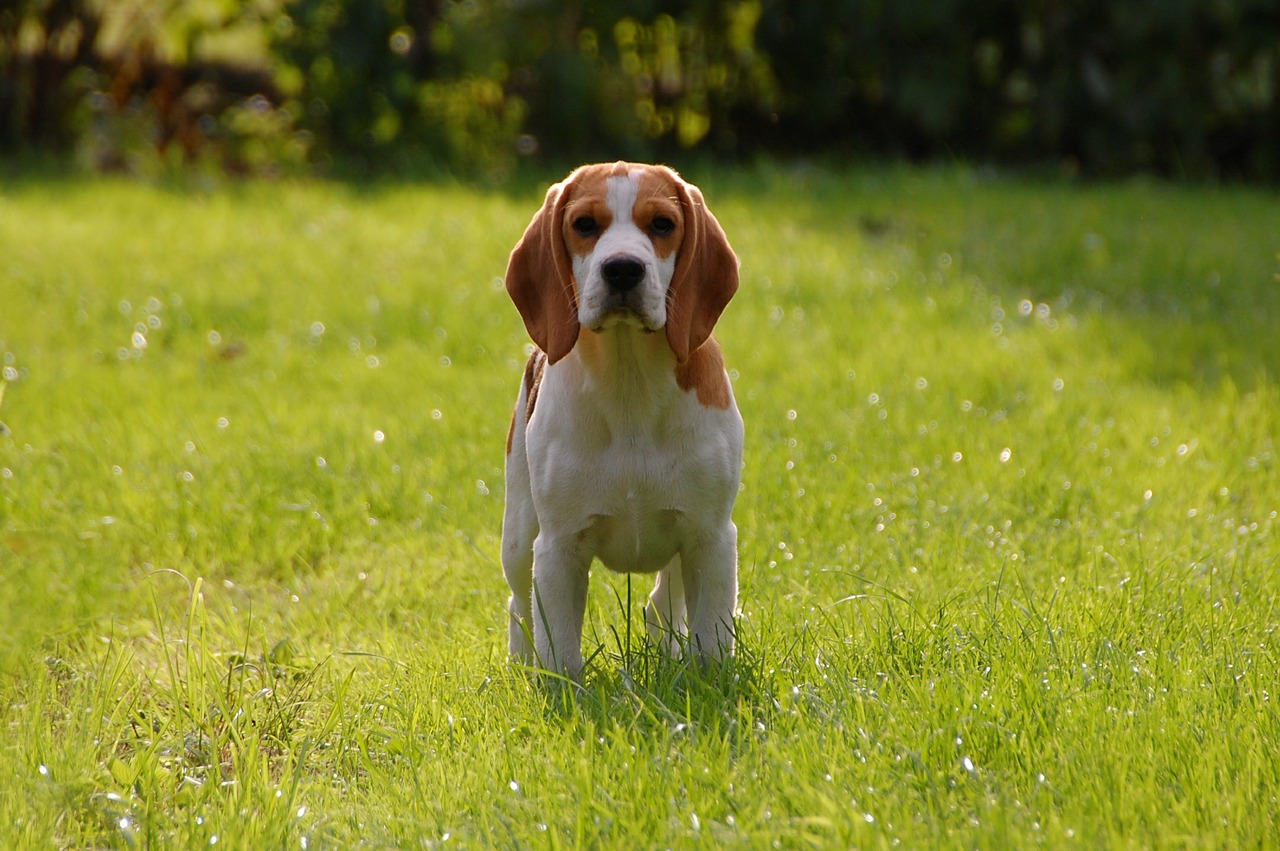
Beagles are a small-sized type of hound that are bred to hunt rodents, including rabbits and gophers. In addition, like spaniels, they are known to be among the best pheasant hunting dogs. Beagles are known for their keen sense of smell that is capable of tracking and uncovering animals, their high energy levels, and their heightened alertness, and are an excellent dog to bring on a hunt.
While beagles are versatile hunting dogs, they especially shine when brought on rabbit hunts. Their tenacity and stamina allow them to never give up or tire out, unlike other types of rabbit hunting dogs. In a pack, they can be used to chase down or flush out small game.
The downside to owning beagles is that they demand a lot of energy. Many beagles do not get nearly as much exercise as they are supposed to. This results in them becoming ornery and fat. For this reason, they should not be kept confined in a house or apartment, as they need a yard to run around in.
Beagles are also prone to being stubborn, and they choose not to obey commands when they have picked up on a scent. This means that they can be hard to train and are prone to running away, especially if running around in an unfenced yard or field. They are also diggers and can tear up a garden or tunnel under a gate if left alone.
Despite being excellent hunting dogs, the stubbornness and defiance of beagles can make them hard to train. Given the proper time and discipline, they can be a valuable asset to bird and rodent hunting. However, if left disciplined and unable to perform their instinctive working tasks, they become obstinate and destructive.
The Weimaraner
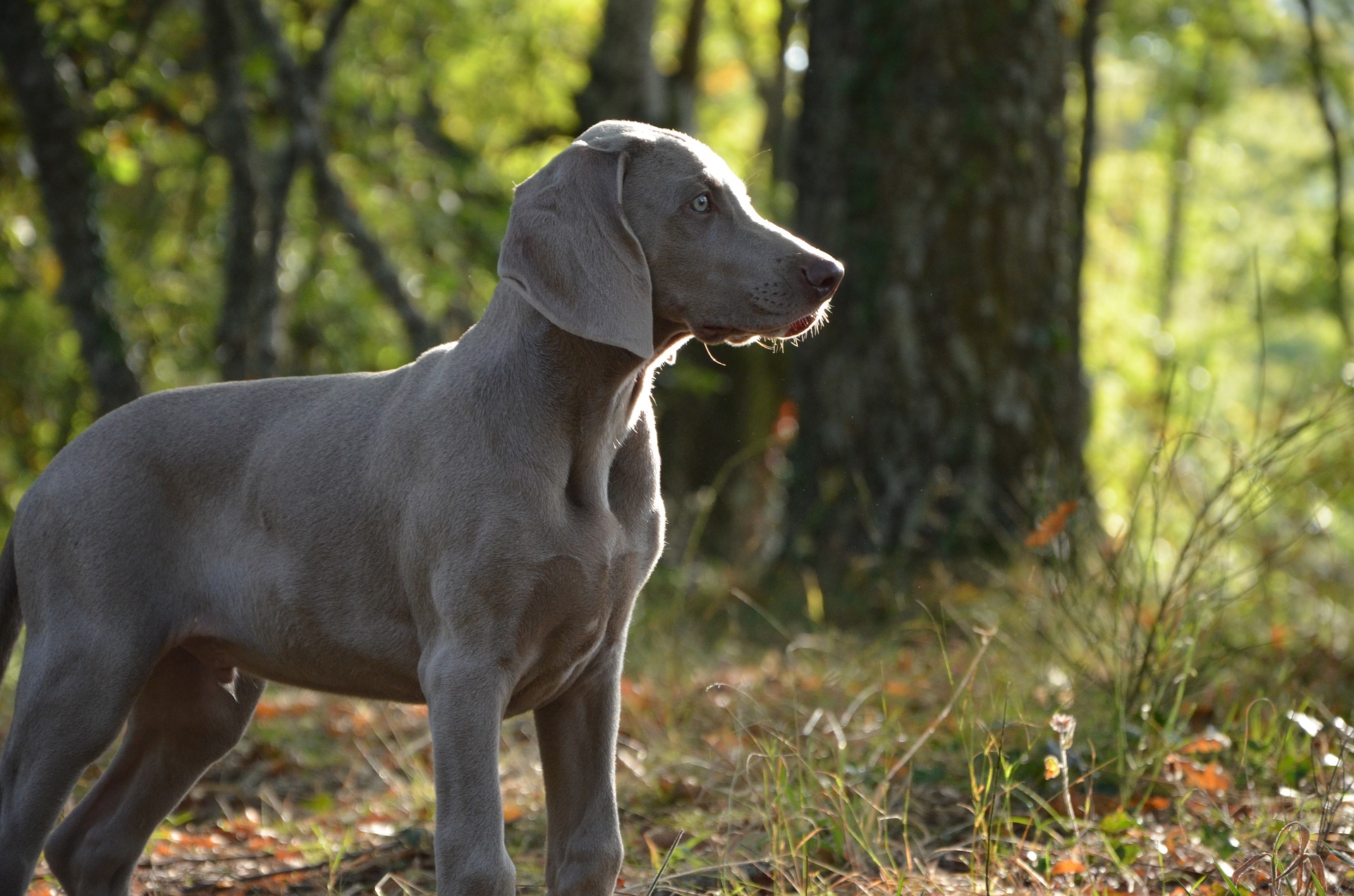
When it comes to gun dogs, the Weimaraner is a jack-of-all-trades. Initially bred to hunt deer, board, and even bear, the Weimaraner can be used to take on game of any size. It is an excellent companion for hunting duck and pheasant, as well as animals like fox and rabbit. When properly trained, the Weimaraner is capable of doing the following tasks:
- Tracking
- Pointing
- Flushing game out
- Retrieving in water and on land
While it may seem like the Weimaraner ranks at the top of its class among the best hunting dog breeds, training and keeping it happy is no easy task. They are emotionally-needy dogs that require a lot of human interaction, otherwise, they will become sad, stressed, or anxious. Additionally, the Weimaraner is recommended for hunters who are physically active, and have the time to take the dogs on walks or jogs, or are able to put them to work in other fashions. If your Weimaraner is left unstimulated, they could become excessively noisy and destructive.
Weimaraners are dogs that value companionship. If you are too busy to give your dog the daily attention that it needs, consider buying two or more Weimaraner puppies. This way, they don’t get separation anxiety from being left alone. They are excellent, easy to train dogs, if you are patient, calm, and have the time to attend to their emotional needs.
The Bloodhound
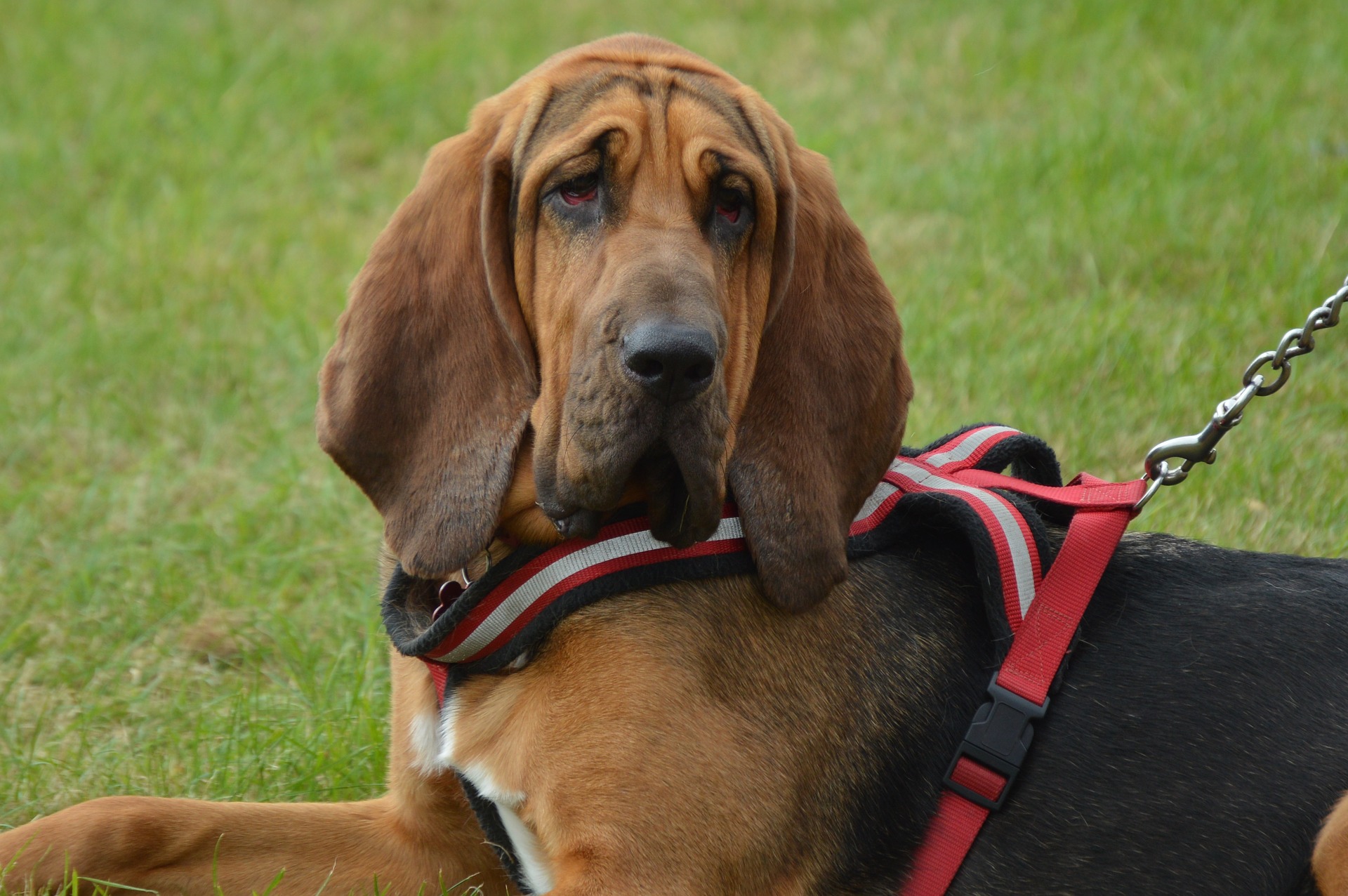
When it comes to tracking dogs, the bloodhound reigns supreme. This iconic breed is able to track anything from game to people, and can follow a trail for days. Because of their uncanny sense of smell, bloodhounds are often employed by law enforcement to track down missing persons and criminals who are evading the law.
As tracking dogs, bloodhounds excel at seeking out larger game. They were initially bred to help hunters find bears, deer, and boars. They are gentle giants who are known as being hard-working and good-natured, which makes the breed a great dog for families. Training the bloodhound is relatively easy as long as you start at a young age and make sure that they maintain happy and engaged. Their desire to perform well and work hard makes the bloodhound an exceptionally obedient dog.
Because of their large stature, it is important that bloodhounds have ample space to run and play. They should also be fenced in or on a leash at all times. Bloodhounds are notorious for following a trail and running off, despite the owner's commands. It's not uncommon for bloodhounds to be unaware of their surroundings as they trail a scent, which can cause them to stumble into traffic.
While bloodhounds are often stereotyped as being lazy and lethargic dogs often sleeping on the front porch, they are actually very energetic and rowdy dogs. They are prone to barking and destructive behavior when not properly exercised. If you plan on raising a bloodhound for hunting purposes, make sure that you are dominant, confident, and consistent as you train your dog.
The German Shorthair Pointer
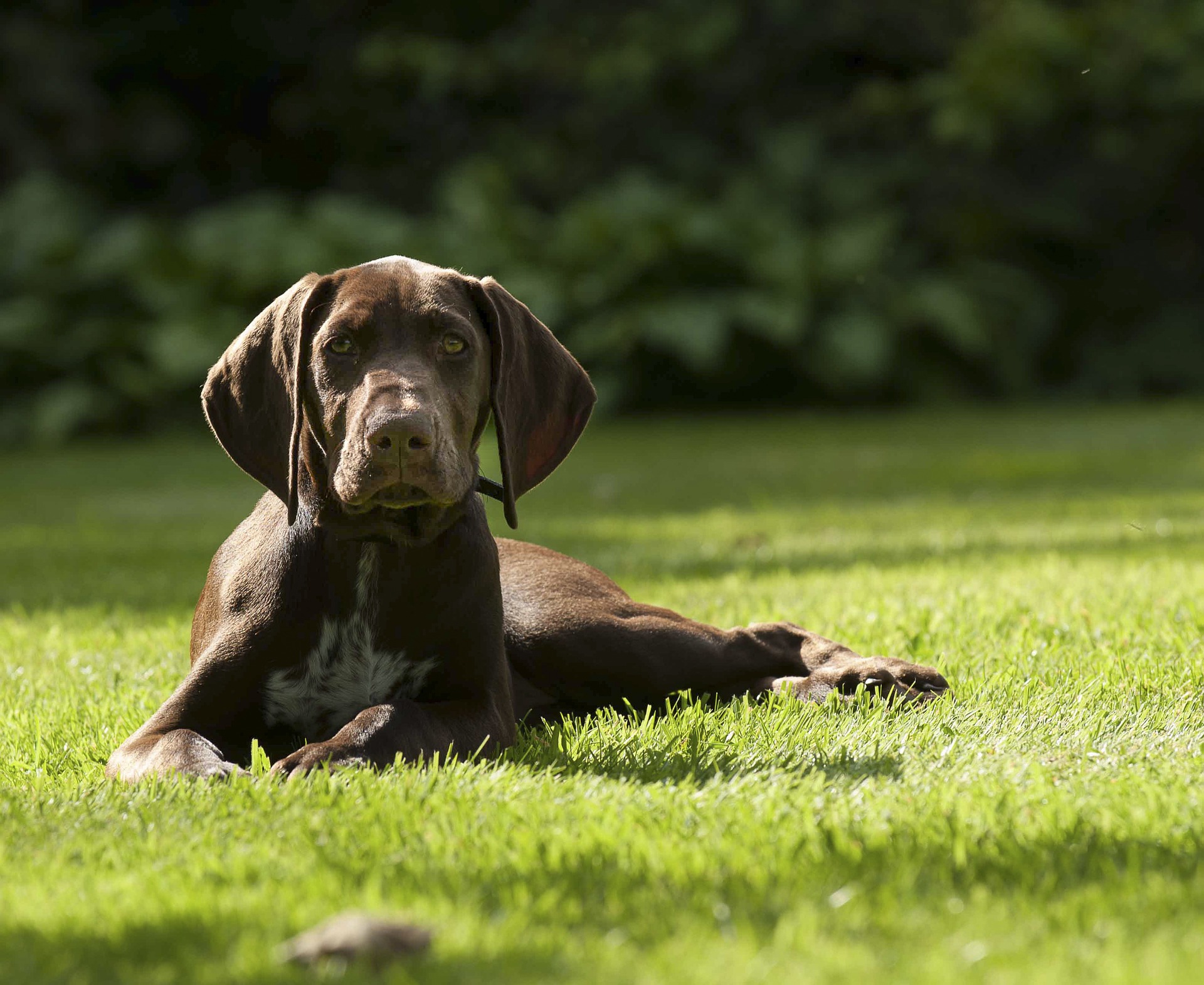
If you’re looking for one of the best bird hunting dogs to take on your hunting trip, the German shorthair is an excellent choice. Having the skills of both bird dogs and hounds, the German shorthair can sniff, point, and even retrieve. This makes them exceptional dogs for hunting duck, quail, and pheasant, and they can even be used to trail larger game like deer.
When it comes to German shorthair pointers, versatility is their biggest selling point. They can be used on virtually any type of hunt, making them excellent for people who enjoy hunting furred and feathered game. Considered to be “America’s bird dog,” German shorthairs are used by many hunters in the United States to hunt pheasants, grouse, and chukar.
As long as your German shorthair pointer is raised around people, it will be friendly and loyal. If raised in isolation, these dogs have a tendency to become standoffish. They’re perfect dogs to use all-year-around, and will stay warm enough to bring on hunts during winter. With enough stimulation and socialization, the German shorthair might be one of the best bird dogs that you’ve ever owned.
German shorthair pointers are highly energetic and can be difficult to train. You shouldn’t consider this breed if you don’t have the time and space to give it ample exercise, as it is an athletic animal that depends on vigorous exercise. It is also important that you train the dog from an early age, and remain firm and consistent in your discipline. This is especially true if you have young children or other animals, as an untrained German shorthair can become stubborn and even aggressive.
The Bluetick Coonhound
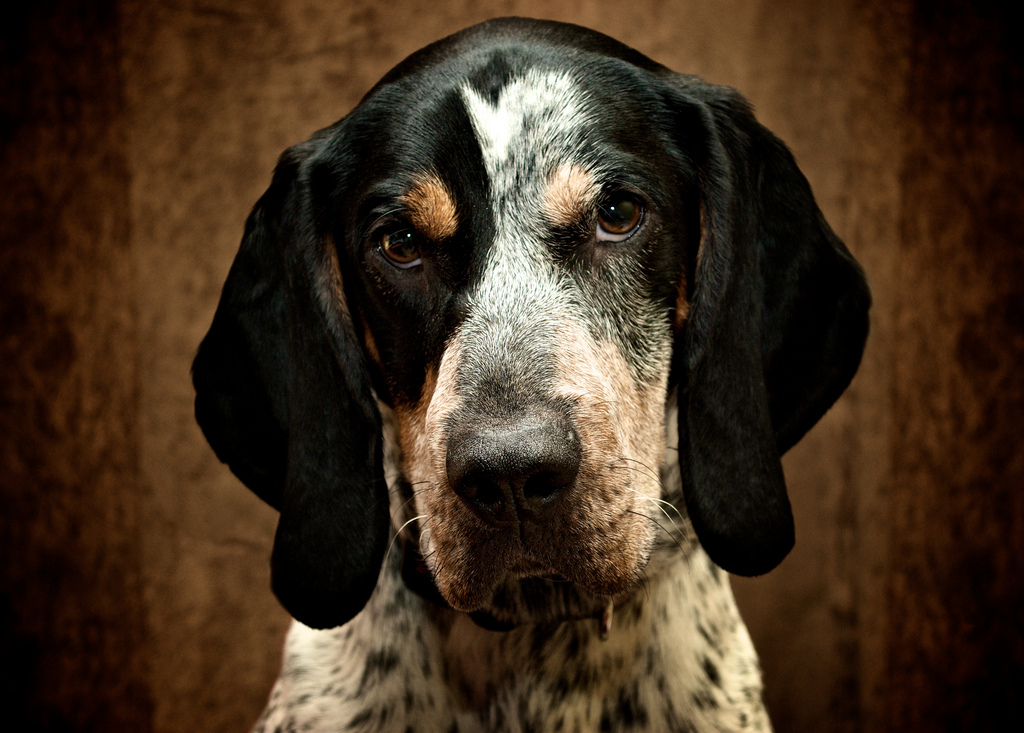
Bluetick Coonhound, Image by bark
Few dogs are more synonymous with hunting in the United States as the bluetick coonhound. Originally bred to hunt raccoon, bluetick coonhounds have been used to track and tree all furred game, including mountain lions and foxes. Both energetic and courageous, bluetick coonhounds will chase animals through any terrain, including briar patches and swamps.
Its keen sense of smell and good stamina make the bluetick coonhound an excellent gun dog to have by your side. The bluetick coonhound is fearless, and is quick to run down animals that are stronger and more dangerous than itself. Additionally, blueticks are relatively easier to train and handle than some of the other hounds. They are also less likely to ignore your command while sniffing in the field.
Blueticks require social interaction, which makes them excellent dogs for the family. They are gentle, relaxed, and are calm around strangers. Since they are howlers, it is common for the bluetick to bark and howl for just about everything, including when it meets new people.
Training a bluetick is not hard work, but they must be mentally and physically stimulated in order to respond to the training. As exceptionally intelligent dogs, blueticks enjoy problem-solving. If left bored for too long, they could wind up creating their own problems to solve. Furthermore, bluetick coonhounds shouldn't be left alone around smaller animals, as they could instinctively chase or attack these animals.
The Jack Russell Terrier
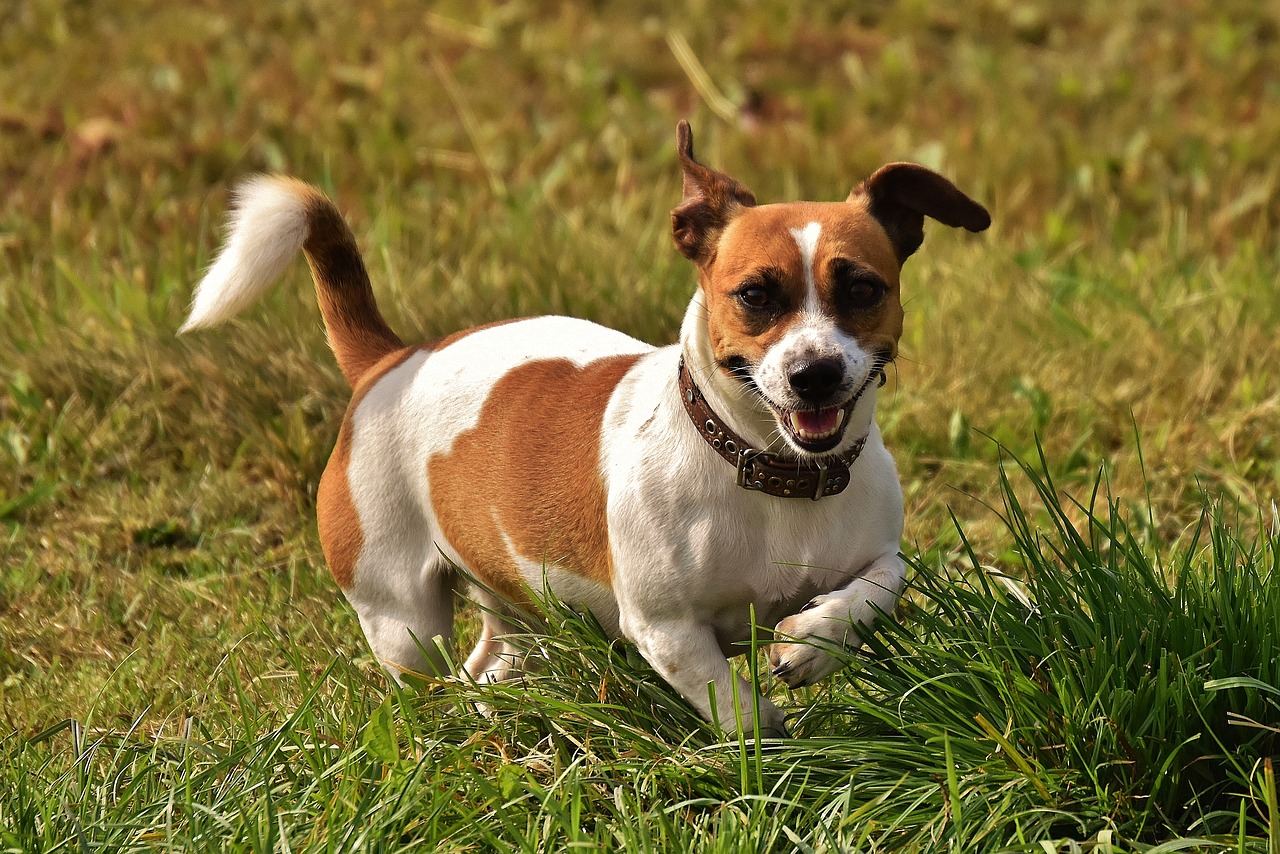
Pound-for-pound Jack Russells are one of the most fearless dogs alive. Initially bred for hunting small game like rats and mice, a pack of Jack Russells are perfect for hunting raccoons, foxes, badgers, and even big game like deer and bear. The Jack Russell terrier is probably the only dog of its size that would have the courage to stand up to a mountain lion.
Versatility, fearlessness, and size are what make the Jack Russell terrier excellent hunting dogs. They don’t think twice about chasing after animals that are much larger, stronger, and deadlier than they are. Their keen sense of smell, speed, and coordination also make them perfect for flushing out birds and other animals.
While many people don't think of the Jack Russell terrier as a hunting dog in the traditional sense, they are useful for virtually any type of hunt. They're extremely energetic, which means that they won't tire out throughout the duration of the hunt. They enjoy working, which makes them obedient and easy to train.
One of the biggest problems with Jack Russell terrier owners is that they don’t give them enough exercise and attention. There are few dogs that have the same level of energy as Jack Russells, and when they aren’t stimulated, they can become destructive and noisy. For this reason, it is important that you give your Jack Russell proper exercise and provide them various mentally-stimulating activities to keep them busy when left unattended.
Jack Russell Terriers are loving and affectionate dogs, which make them perfect for families. However, due to their hunting nature, they don’t typically get along well with other animals, which could present a problem. As chasing dogs, they are also keen on darting away, especially if there is a rodent or cat nearby.
Picking Your Champion Hunting Dog
When looking for an outstanding hunting dog, don’t focus on trying to find the perfect breed of dog. There are hundreds of different types of hunting dogs with their own personalities, temperaments, strengths, and weaknesses. What’s important is that you find a dog that works best for you. Here are some points to consider before you choose your hunting dog:
- Is your personality compatible with its temperament?
- Are you going to be able to give it the necessary exercise and mental stimulation it needs?
- Will it be okay around your family or pets?
- Do you have enough space for it to run around?
- Are you confident and commanding enough in your training approach?
An excellent hunting dog will be loyal, eager to please you, and fearless. When taking on a hunting dog, you’re building a relationship that takes a lot of time and effort. For this reason, it is critical that you discipline your dog when they disobey, but reward them when they do well.
Understand That No Dog Is Perfect
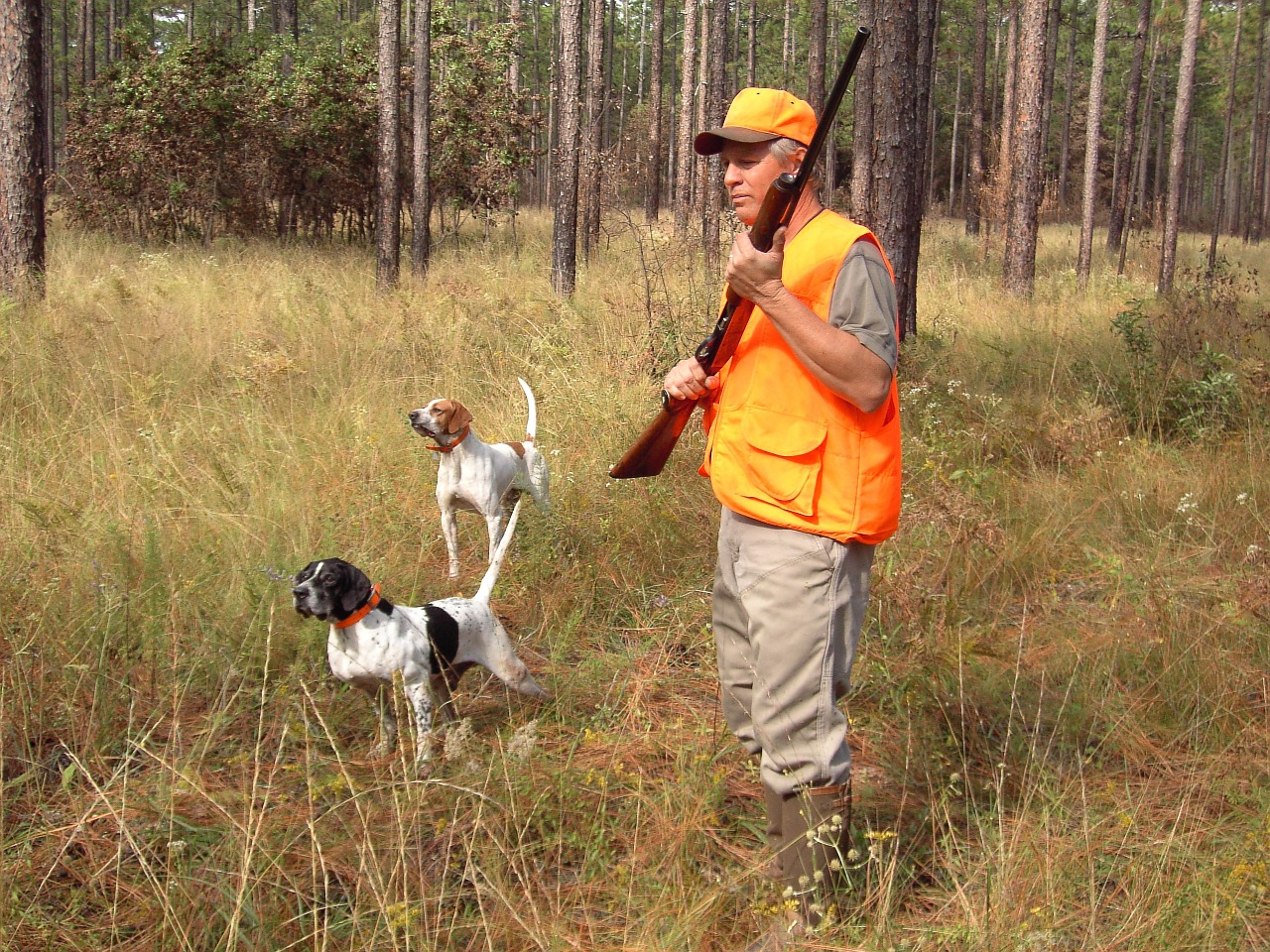
Breed, personality, and good training are only part of the things that make a good hunting dog. Your companion will only perform as well as he or she is treated, so make sure that you always treat them well. This can be done by giving them the attention and exercise that they need, and not overworking them or placing them in conditions that stresses them.
Know what your dog’s strengths and weaknesses are, as well as its capabilities. It’s essential that you do proper research beforehand, so that you choose the right type of dog for the task. Some dogs are better at tracking, while others specialize in flushing out and retrieving.
Furthermore, you should be aware of your dog’s environmental limitations. For example, if you have a Labrador or golden retriever, know that these cold-weather dogs are not designed for the summer heat. Overworking a gun dog that isn’t adapted to warm weather is a surefire way to have them overheat, which could easily kill them.
Think of your hunting dog as a four-legged person, except much more agreeable and eager to make you happy. Just like a person, they are prone to making mistakes. Even the best hunting dogs have a stubborn streak in them. By keeping your dog happy and stimulated, you are guaranteed to have the perfect companion with you on your hunt.

